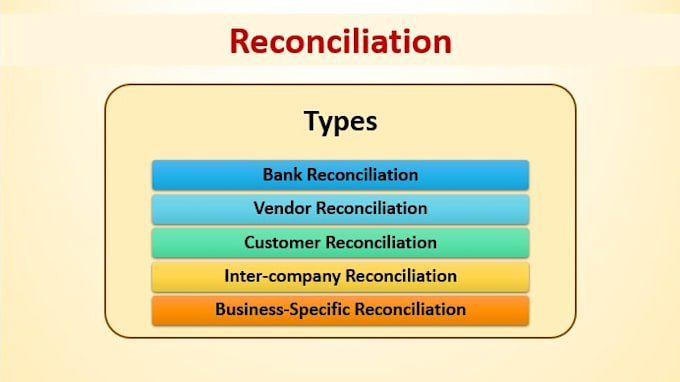Why Family Is Important: The Foundation of Personal Growth and Social Connection
The fundamental role of family in human development
Family serve as the cornerstone of human society, provide the essential framework for personal development, emotional security, and social learning. These primary relationships shape who we become and how we navigate the world around us. The importance of family extend far beyond basic survival needs, encompass emotional, psychological, and social dimensions that influence our entire lives.
Strong family bonds create a foundation of trust and security that enable individuals to explore, learn, and grow with confidence. This secure base allow family members to take risks, pursue goals, and develop resilience in the face of challenges. The family unit act as both a launch pad for personal achievement and a safe harbor during difficult times.
Emotional support and mental health benefits
One of the well-nigh significant ways family impact our lives is through emotional support and mental health benefits. Family members provide a unique form of unconditional love and acceptance that can not be replicate in other relationships. This emotional foundation contribute to better mental health outcomes, reduce stress levels, and increase overall life satisfaction.
Research systematically show that individuals with strong family connections experience lower rates of depression, anxiety, and other mental health challenges. The presence of supportive family members create a buffer against life’s stresses and provide multiple perspectives on problem-solving. Family relationships offer a safe space to express emotions, share concerns, and receive guidance without judgment.
The emotional intelligence develop within family relationships translate to better social skills in other areas of life. Learn to communicate efficaciously, manage conflicts, and show empathy within the family context prepare individuals for success in friendships, romantic relationships, and professional environments.
Values transmission and character development
Families serve as the primary vehicle for transmit values, beliefs, and moral principles from one generation to the next. This process of values transmission shapes character development and provide a moral compass for decision-making throughout life. The lessons learn within the family context frequently become the guide principles that influence major life choices.
Parents and extended family members demonstrate through their actions what it means to be honest, compassionate, responsible, and resilient. Children observe these behaviors and internalize them as part of their own identity. This process of modeling and learning create a foundation of character that extend far beyond childhood.
The values transmit within families besides contribute to cultural preservation and continuity. Traditions, customs, and cultural practices pass down through generations help maintain cultural identity and provide a sense of belong to something larger than oneself.
Economic security and resource sharing
Family units provide economic advantages through resource sharing, mutual support, and collective problem-solving. The pooling of resources within families create opportunities for education, homeownership, business ventures, and other investments that might be impossible for individuals act lone.
Extended family networks oftentimes serve as informal safety nets during times of financial hardship, unemployment, or unexpected expenses. This economic support system reduce financial stress and provide stability that enable family members to pursue long term goals kinda than focus exclusively on immediate survival needs.
Family connections besides facilitate knowledge sharing about financial management, career opportunities, and investment strategies. The accumulate wisdom and experience of multiple generations can provide valuable guidance for make sound financial decisions and build long term wealth.
Social learning and relationship skills
The family environment serves as the first classroom for learn social skills and relationship dynamics. Within the family context, individuals learn how to communicate efficaciously, resolve conflicts, show affection, and maintain long term commitments. These fundamental relationship skills form the foundation for all future social interactions.
Siblings provide unique opportunities for learn negotiation, compromise, and cooperation. The dynamics between brothers and sisters teach valuable lessons about fairness, sharing, and manage competition in healthy ways. These skills prove invaluable in professional settings, friendships, and romantic relationships.

Source: pixabay.com
Multi generational family interactions expose individuals to different perspectives, communication styles, and problem solve approaches. This diversity of viewpoints within the family unit develop flexibility and adaptability in social situations.
Identity formation and sense of belong
Family relationships play a crucial role in identity formation and create a sense of belong. Understand family history, traditions, and share experiences help individuals develop a clear sense of who they’re and where they come from. This foundation of identity provide stability and confidence in navigate life’s challenges.
The stories families tell about their heritage, achievements, and overcome obstacles become part of each member’s personal narrative. These share stories create a sense of pride and connection that extend beyond individual accomplishments to include collective family identity.
Family traditions and rituals create meaningful connections and shared memories that strengthen bonds between family members. These regular gatherings and celebrations provide consistency and continuity that anchor individuals throughout their lives.

Source: imgflip.com
Health and longevity benefits
Strong family relationships contribute importantly to physical health and longevity. The social support provide by family members reduce stress hormones, boost immune function, and promote better overall health outcomes. Individuals with close family ties tend to engage in healthier behaviors and seek medical care more readily when needed.
Family members oftentimes serve as advocates for each other’s health, encourage regular check-ups, healthy lifestyle choices, and compliance with medical treatments. This mutual accountability system promote better health outcomes for all family members.
The emotional support provide by family relationships likewise contribute to faster recovery from illness and better management of chronic conditions. Have family members who care about one’s intimately being provided motivation for maintain health and follow treatment recommendations.
Crisis support and resilience building
During times of crisis, family relationships provide essential support that help individuals navigate challenges and build resilience. Whether face job loss, illness, divorce, or other major life disruptions, family members offer practical assistance, emotional support, and alternative perspectives that facilitate problem-solving.
The knowledge that family support is available create confidence to take appropriate risks and pursue opportunities that might differently seem besides daunting. This safety net effect enable individuals to be more adventurous in their career choices, educational pursuits, and personal growth activities.
Family relationships to provide continuity during times of change. When other aspects of life are uncertain or unstable, family connections offer consistency and ground that help maintain emotional equilibrium.
Intergenerational learning and wisdom sharing
One of the unique advantages of family relationships is the opportunity for intergenerational learning and wisdom sharing. Older family members possess life experience, practical knowledge, and historical perspective that can provide valuable guidance for younger generations.
This transfer of knowledge include both practical skills and life lessons learn through experience. Grandparents, parents, and other older relatives can share insights about career development, relationship management, financial planning, and personal growth that would be difficult to acquire elsewhere.
Younger family members besides contribute fresh perspectives, technological knowledge, and contemporary insights that benefit older generations. This bidirectional learning create mutual respect and strengthen intergenerational bonds.
Create legacy and meaning
Family relationships provide opportunities to create last legacy and mean beyond individual achievements. The investment in family relationships create positive impacts that extend to future generations through improve parenting, stronger values transmission, and better relationship skills.
Contribute to family advantageously being and support family members’ success create a sense of purpose and meaning that extend beyond personal accomplishments. This focus on collective family success oftentimes lead to greater life satisfaction and fulfillment.
The knowledge that family relationships will continue beyond one’s own lifetime will provide a form of immortality through the ongoing impact on future generations. This perspective will encourage long term thinking and investment in relationships that will benefit others foresightful after individual contributions end.
Conclusion
The importance of family extend far beyond basic biological connections to encompass emotional, social, economic, and psychological dimensions that influence every aspect of human experience. Strong family relationships provide the foundation for personal development, emotional well-being, and social success while create meaning and purpose that extend beyond individual achievement.
Invest time and energy in build and maintain family relationships yield benefits that compound over time, create positive impacts for current and future generations. The support, love, and connection provide by family relationships remain among the about valuable resources available for navigate life’s challenges and celebrate its joys.



